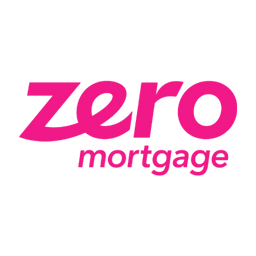When financing a home, finding lower mortgage interest rates can save you a lot of money in the long term. The lending industry uses the FICO credit score model to grade consumers based on a 300-850 point range. A higher score denotes that individuals in this group keep to their credit and loan obligations, as such lenders consider this group of people as individuals who would always pay back their loans. Consequently, they are usually offered lower mortgage interest rates. Conversely, individuals who have a lower credit score get higher mortgage interest rates that reflect their likelihood of paying back their loans. If you are interested in buying a house, check out the mortgage rates in your area:
Lower Mortgage Interest Rates
Have you experienced an incident where your friend gets a lower mortgage interest rate over you on the same mortgage? Have you wondered how your credit score impacts on your mortgage interest rates? Have you ever asked if higher credit scores would get you lower mortgage rates? Well, these questions and more are answered below.
Are Lower Mortgage Interest Rates Linked to Higher Credit Scores?
When you apply for a mortgage, the credit score is one of the top factors that impact the interest rate. Lenders typically use the FICO model for credit scores. It grades consumers based on a 300-850 point range. The higher the score on the grade, the lesser the risk to the lender. A high credit score indicates that the individual is good at meeting their credit card and other home loan obligations, which means that lenders are more likely to give a loan because they know the individual would pay back. For example, an individual with a FICO score of 760-850, making a monthly payment of $975 at an annual percentage rate of 4.17%, will pay an interest rate of $150,833; whereas another individual with a lower FICO score of 620-639, making a monthly payment of $1,168 at an annual percentage rate of 5.759%, will attract a higher interest rate of $220,584. Therefore, without a high credit score, the individual will end up paying more money within the duration of the mortgage.
The lending industry sets up the credit score scale into 20-point increments, then they adjust the interest rates for the borrower each time the credit score rises or drops by the 20-point scale. For example, assuming a borrower has a FICO credit score of 780 and wants to buy a house worth $240,000; the interest rate will be placed at 3.875%, which means the borrower pays about $1,129 monthly. However, supposing the borrower’s FICO credit score drops to 680-699, the interest rate will be increased to 4.125% and the monthly payment will also increase to $1,163. Therefore, higher credit scores imply lower mortgage interest rates.
What Does the Credit Score Scale Look Like?
The FICO credit score model grades consumers based on a 300-850 point range. A credit score in the 750-850 point range is considered excellent. 700-749 is considered good. 650-699 is considered fair while 300-649 is considered poor. Generally, if your score falls below 700, you could end up paying a lot more because a credit score within 700s attracts a lower interest rate compared to a 680 or 640. The average credit score for an American aged 18-29 is 652 while the average score for an American aged 30-39 is 671. So, if you want to get lower mortgage rates, it is important that you maintain a high credit score by ensuring that you always keep your credit card, car loans, and other home loan obligations. For example, supposing individuals A and B have a credit score of 750 and 620 respectively. A will get an interest rate of 4.25% and a $1,476 monthly mortgage, while B will get a 4.75% interest rate and a $1,565 monthly mortgage, both on a $300,000 mortgage. In a space of 15 years, B will pay $21,050 interest more than A.
A higher credit score will also help you if you are thinking about refinancing your home. By doing so, you may lower your monthly payments, and get the extra cash for a personal expense, like a trip, wedding or home refurbishment.
Lower Mortgage Interest Rates and Credit Score: The Bottom Line
Chief Economist for Realtor.com, Jonathan Smoke analyzed 170,000 mortgage loans processed between September 1 and November 7, 2016; he concluded that individuals with higher credit scores were able to get lower mortgage rates. The median rate for borrowers with a score of 750 and above was 3.62%. Individuals with a credit score below 625 may find it difficult to get a mortgage loan approved. However, the Federal Housing Administration (FHA) can offer loans to people with poor credit scores who can’t afford large down payments. The Department of Veterans Affairs also works with lenders to make loans accessible to military veterans and families.










